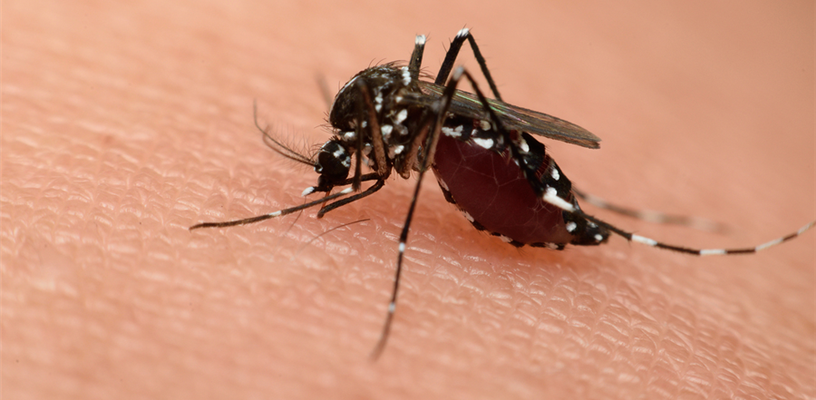
- By Environmental Health Division
- Posted Wednesday, July 6, 2016
Preventing Mosquito Bites & Breeding
Did you know that in Forsyth County during the months of June through October most of our mosquitoes come from right around your house? They don’t come from that creek, they don’t come from that “nasty pond” and most of our swamps are dried up until late October, so they are not coming from there! Where could they be coming from? Is the mosquito you are dealing with biting you in the daytime? Does it seem to love your kids or grand kids? Does it always seem to bite you from the waist down? Do you seem to always get bit on the ankles?
If you answered any of these questions yes, you may be dealing with the Asian tiger mosquito or Aedes albopictus. This mosquito is very easy to recognize. This species has very distinct black and white markings on its legs and body. It’s actually a very beautiful mosquito to look at under a microscope. It was introduced into our area of the country around 1987. The species was brought to our county in tires that were being transported from other areas of the country. From this one site it was discovered, this mosquito spread over the entire county over a 15 year period of time.
The first thing we recommend if you have a mosquito problem is to find an Insect repellant that works for you. The CDC has many new recommendations for repellants and you can find this information at: www.cdc.gov.
In the mosquito control profession we consider this mosquito to be “peridomestic”; this means it loves to live near people. This mosquito actually depends on humans for its habitat! This mosquito breeds in things like : bird baths, buckets, tires, cups, soda cans, kiddy pools, small toys, gutters, trash, abandoned cars, abandoned boats, wheel barrows, black corrugated pipes, underground drains, unused fish ponds, sump pumps and the list goes on and on. This mosquito breeds in anything in your yard that can hold small amounts of water. In fact, if there has been water in the container in the past, there are probably already mosquito eggs that have been laid. Remember to discard any items, however small, that may collect water.
This mosquito behaves very differently than our other native mosquitoes. Here are some of the ways that you can tell if you are dealing with the Asian tiger mosquito:
- This mosquito feeds in the daytime hours. It is what we call Diurnal. They can be in your garden from dawn to dusk.
- This mosquito often “probes” or looks for a good spot to feed on you. When a mosquito does this, she can leave multiple bites.
- This mosquito often bites on the back of your legs and arms. It does this to avoid you swatting it!
- This mosquito often feeds from the waist down; it loves the ankles and feet.
- This mosquito rarely flies more than a couple hundred feet from where it hatched from. So if you have the Asian tiger mosquito, look around your property for breeding sites.
To prevent the mosquitoes from breeding in your neighborhood remember to DUMP out any standing water on your property. If you still have a problem, give the Forsyth County Environmental Health Division a call at 336-703-3225 and we can help you find the source!






